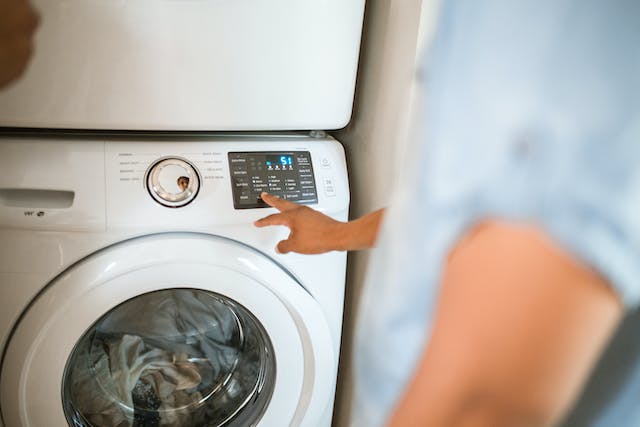Water damage is a real headache for homeowners. It causes costly repairs and disrupts our daily lives. Luckily, there are effective ways to prevent water damage incidents. In this post, we’ll explore some easy-to-follow tips that anyone can use to keep their homes safe and dry.
Gutters and Downspouts
Gutters are like the first line of defense against rainwater. When it rains, gutters collect the water running off your roof and direct it away from your home. Without gutters, rainwater could pool around the foundation. This can lead to soil erosion & potential water damage.
The foundation is like the backbone of your home, and keeping it dry is crucial. If water pools near the foundation, it can seep into the ground. This can compromise the structural integrity. Gutters, by directing water away, play a key role. They preserve the stability of your home’s foundation.
Cleaning Gutters Steps
- Gather Your Tools: You’ll need a sturdy ladder, gloves, a small hand rake or scoop, and a hose.
- Safety First:Before climbing the ladder, ensure it’s on stable ground. Wear non-slip shoes, and ensure the ladder reaches high enough so you’re not stretching or overreaching.
- Remove Larger Debris: Use the hand rake or scoop to remove larger debris like leaves and twigs. Start from the downspout and work your way towards the other end of the gutter.
- Flush with Water:Once you remove large debris, flush out the remaining smaller particles. This also helps you identify any clogs in the downspout.
- Inspect for Damage:While cleaning, keep an eye out for any damage to the gutters. Look for rust, holes, or sagging sections. Repair or replace damaged areas.
Ensure downspouts direct water away by:
- Checking Downspout Position: Position downspouts to direct water away from your home. They should extend at least 3 feet away from the foundation, onto a sloping surface.
- Using Downspout Extensions: If needed, invest in downspout extensions. Attach them to the spouts. It helps direct water even farther away from your home. It reduces the risk of water pooling near the foundation.
- Installing Splash Blocks: Placing splash blocks at the end of downspouts can further disperse water and prevent soil erosion. These simple blocks direct away from the foundation without causing any damage to the surrounding landscaping.
Regular Roof Inspections
Regular roof inspections are vital for safeguarding your home from water damage. Roofing system is a crucial barrier against the elements. However, missing or damaged shingles can compromise its effectiveness. By conducting routine checks, you can identify issues early on and address them fast.
Timely repairs:
- Ensure that the roofing system remains in proper condition
- Preventleaks that might otherwise result in extensive damage to the interior of your home.
- Enhanceyour home’s resilience to water
- Contributeto its longevity
Provide lasting protection and peace of mind for homeowners.
Seal Windows and Doors
Securing your home against water intrusion involves paying attention to vulnerable entry points, such as windows and doors. Regularly inspect these areas for gaps and cracks in the seals, as they can allow water to seep into your home. To fortify these openings, employ weatherstripping or caulk.
Weatherstripping seals gaps around movable components, like windows and doors, while caulk is effective for filling stationary gaps. This straightforward yet crucial step not only prevents water infiltration, safeguarding your home from potential damage but also contributes to energy efficiency by enhancing insulation. You create a more resilient and energy-conscious living space by sealing windows and doors.
Maintain Appliances
Regular maintenance of household appliances is key to preventing water damage within your home. Appliances can pose a risk if not cared. These include:
- Washing machines
- Dishwashers
- Water heaters
Inspect hoses & connections for any signs of:
- Wear & tear
- Corrosion
- Leaks
Focus on areas where hoses connect to the appliances and water supply lines. Replace any damaged or worn-out parts. This includes hoses, valves, or connectors, to prevent water from escaping.
Timely attention to these details:
- Ensures proper functioning of your appliances
- Reduces the likelihood of water-related mishaps
- Safeguards your home from potential damage and costly repairs.
Install a Sump Pump
Installing a sump pump is a good strategy, especially if your home has a basement, as it acts as a powerful shield against potential flooding. This device is designed to efficiently pump excess water away from your home’s foundation, preventing water from pooling and causing structural damage.
To ensure its effectiveness, regularly check that the sump pump is in good working condition. Perform routine inspections to confirm that the pump is free of debris and that the float switch moves freely. Additionally, conduct periodic tests to guarantee its readiness in handling unexpected water influxes.
A well-maintained and functional sump pump provides a reliable defense against basement flooding, contributing to a dry and secure living space.
Keep an Eye on Water Pressure
High water pressure might sound like a good thing, but it can cause damage to your pipes and appliances. Invest in a water pressure gauge. Plus, make sure your home’s pressure is within the recommended range. Consider installing a pressure regulator. It helps protects your plumbing system if it’s too high.
Monitor Plumbing for Leaks
Even a small leak can cause damage. Make sure to check for leaks:
- Under sinks
- Around toilets
- In your basement or crawl spaces. Fix any leaks fast, and don’t ignore even the minor drips – they can add to big problems.
Landscape with Water in Mind
Landscaping can play a role in reducing water damage. Ensure that the ground around your home slopes away from the foundation. This helps rainwater drain away instead of pooling around your house. Use mulch and plants to prevent soil erosion and promote proper water absorption.
Wrapping Up
Preventing water damage is vital for maintaining a safe and comfortable home. You can reduce the risk of water-related incidents by:
- Cleaning gutters
- Maintaining your roof
- Sealing windows and doors
- And monitoring appliances.
Regular inspections and proactive measures can save you from:
- The hassle
- Expenses associated with water damage.
Emergencies occur when least expected. So, if you experience a water-related emergency, contact us. At NYWaterDamage911, we are here to help you seven days a week. Contact us for comprehensive and quality assistance.




